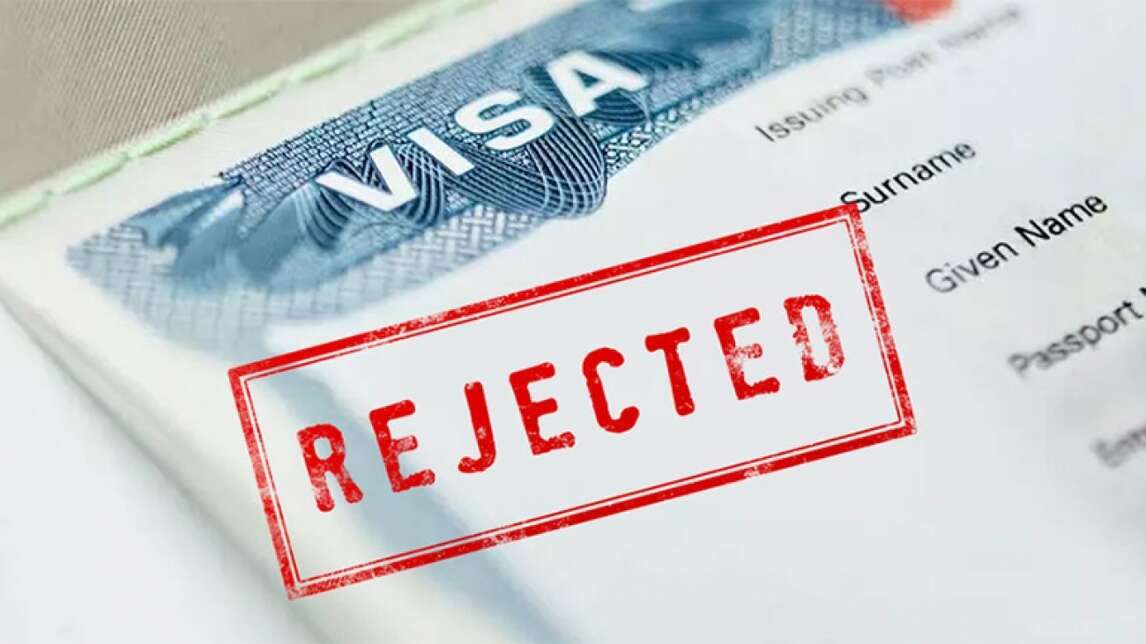Applying for a European visa for scholarships or jobs can be a challenging process, and many applicants face visa rejection due to incomplete documentation, financial concerns, or failure to meet eligibility criteria.
To increase your chances of visa approval, you need to follow the correct procedures and avoid common mistakes. This guide will help you understand the reasons for visa denial and provide essential tips on how to secure your European visa without rejection.
1. Common Reasons for Visa Rejection
Visa applications are often rejected due to errors, incomplete information, or missing documents. Below are some of the most common reasons why visas for European scholarships and jobs get denied:
❌ Insufficient Financial Proof
- Many European countries require proof that you can support yourself financially.
- Not providing bank statements, scholarship letters, or job contracts can lead to rejection.
❌ Incomplete or Incorrect Documentation
- Missing admission letters, job offer letters, or proof of residence can result in denial.
- Always verify document requirements for the Schengen Visa, Work Visa, or Student Visa.
❌ Lack of Clear Travel Intentions
- If your purpose of travel is unclear, the embassy may suspect visa fraud.
- Clearly explain why you are traveling, whether for study, work, or research.
❌ Poor Interview Performance
- If an interview is required, nervousness, lack of preparation, or inconsistent answers can lead to rejection.
❌ Criminal Record or Previous Visa Violations
- If you have been deported, overstayed a visa, or have a criminal record, your visa application may be denied.
2. How to Avoid Visa Rejection for Scholarships & Jobs in Europe
✅ 1. Submit Complete and Accurate Documents
- Ensure you have all required documents, including:
- Admission letter or job offer letter
- Visa application form (correctly filled out)
- Proof of funds (bank statement or scholarship letter)
- Health insurance (for Schengen countries)
- Flight reservation & accommodation proof
✅ 2. Show Sufficient Financial Proof
- Provide proof that you can afford to live in Europe:
- Scholarship recipients must submit an official sponsorship letter.
- Job applicants should provide a salary contract showing they meet the minimum income requirement.
- A personal bank statement with at least €7,000 – €10,000 (varies by country) can help.
✅ 3. Prepare for the Visa Interview
- Some European embassies require an interview for work and student visas.
- Tips for a successful interview:
- Be confident and answer questions clearly.
- Explain why you chose the university or job.
- Provide details on your return plans after studies or employment.
✅ 4. Apply for the Right Visa Category
- Ensure you are applying for the correct visa:
- Schengen Visa – Short-term study or job visits.
- Student Visa – If staying for over 90 days for study purposes.
- Work Visa – For professionals with an official job offer from a European employer.
✅ 5. Avoid Last-Minute Applications
- Start your visa process 3–6 months in advance to handle delays.
- Check the visa processing time for your destination country.
3. European Countries with High Visa Approval Rates
If you want a higher chance of visa approval, consider applying for scholarships and jobs in these visa-friendly European countries:
🌍 Germany – High approval for student and skilled worker visas.
🌍 Norway – Easy visa process for scholarship holders.
🌍 Sweden – Scholarships often come with residence permits.
🌍 Portugal & Poland – Quick visa processing for job seekers.
Getting a European visa for scholarships or jobs is possible if you follow the right steps and avoid common mistakes. Ensure that your documents are complete, financial proof is strong, and interview performance is solid. Apply early, follow embassy guidelines, and choose visa-friendly countries to increase your chances of visa approval in 2025!

